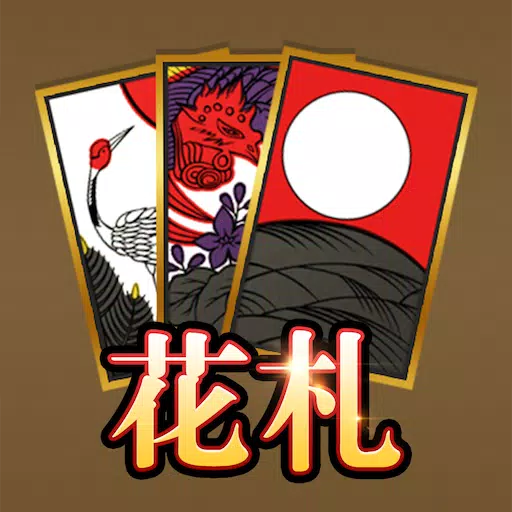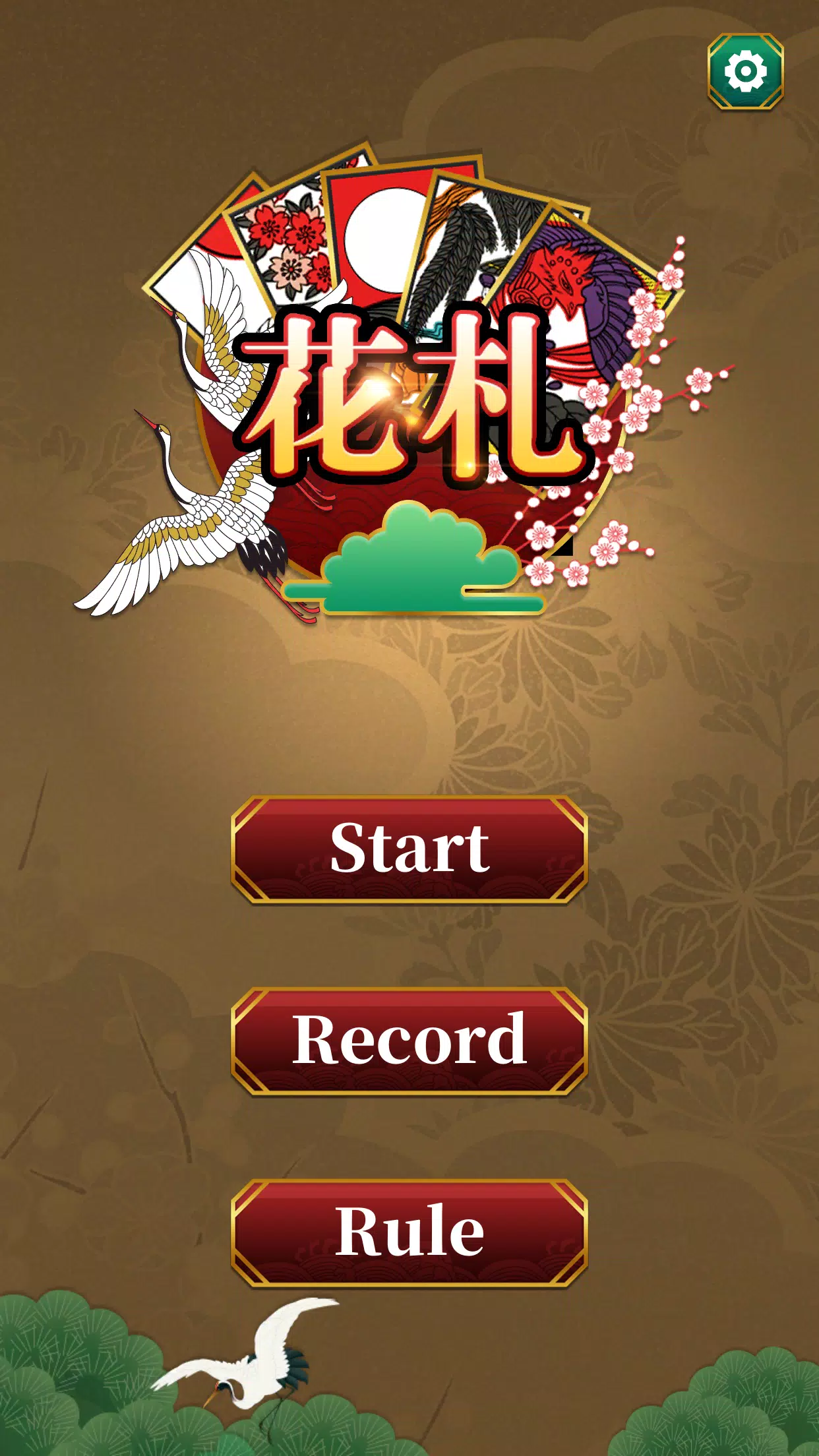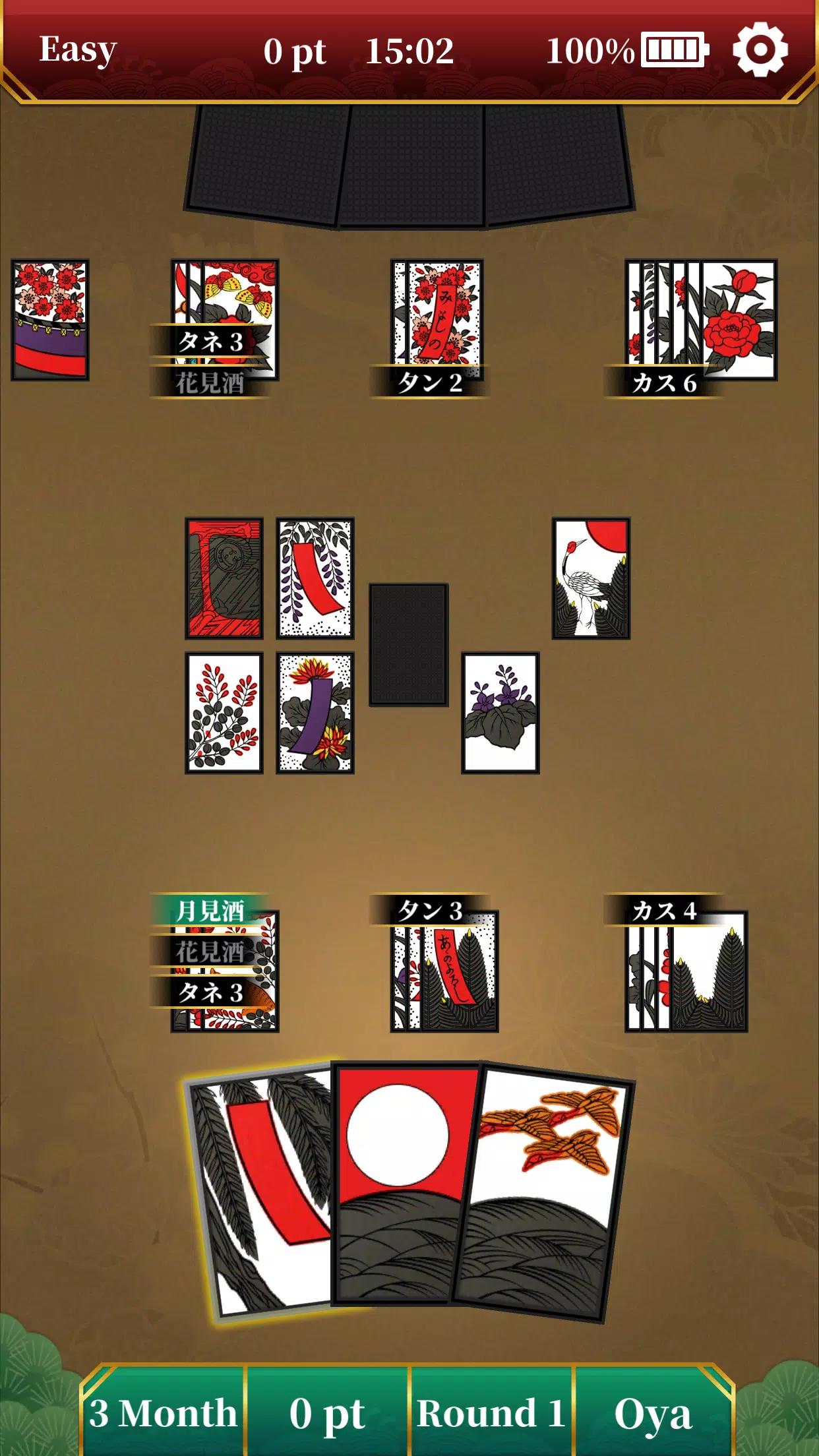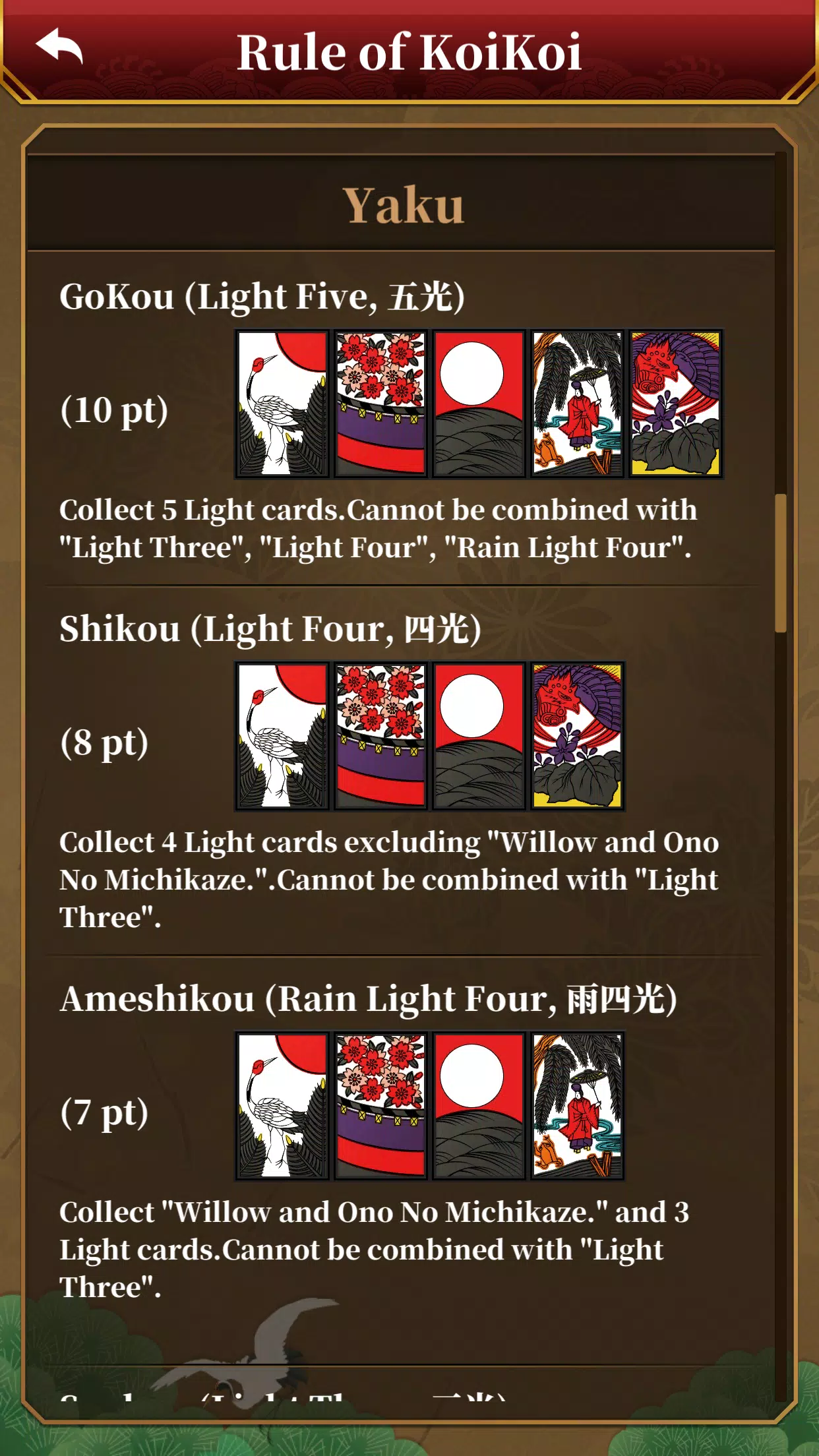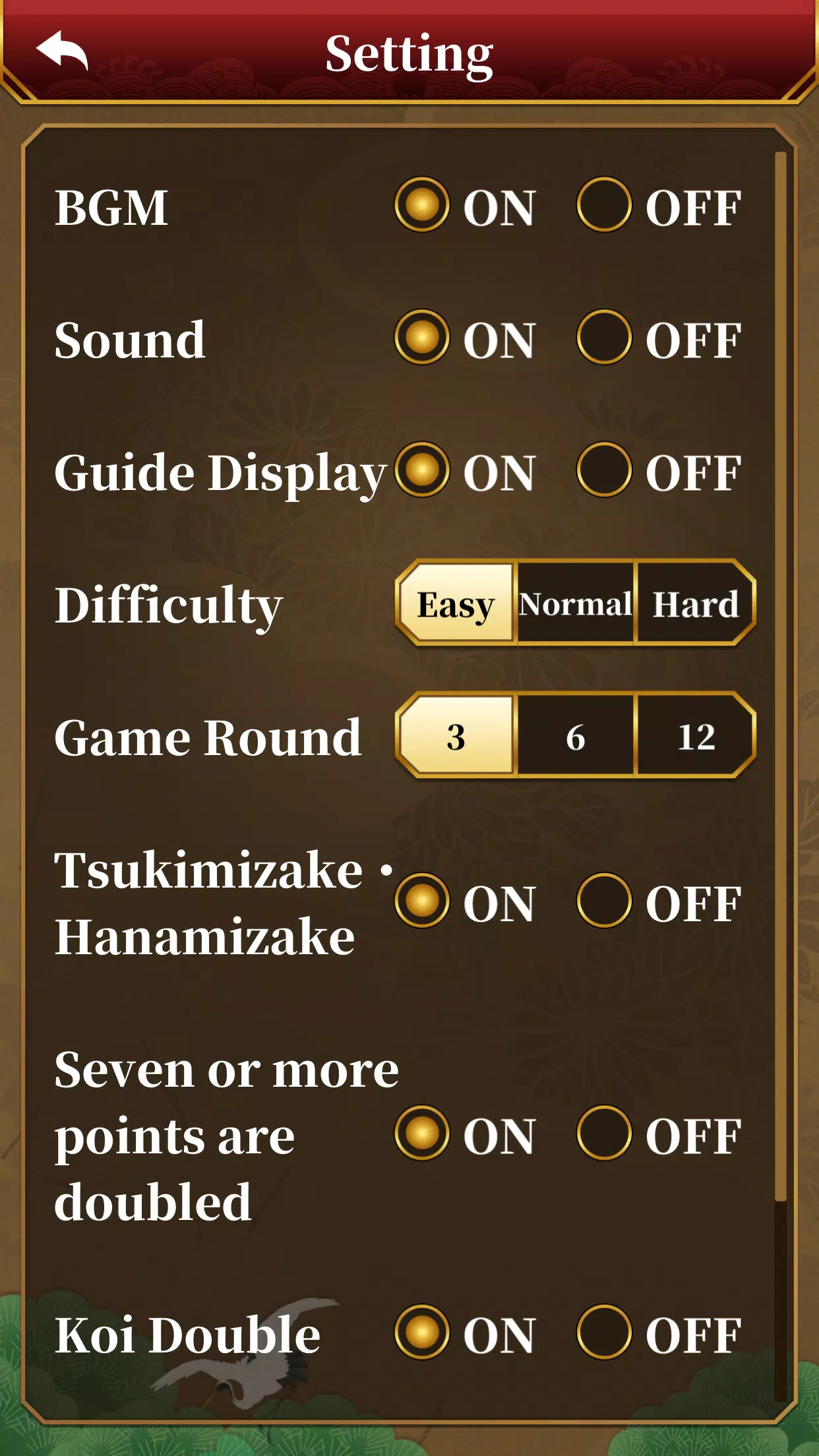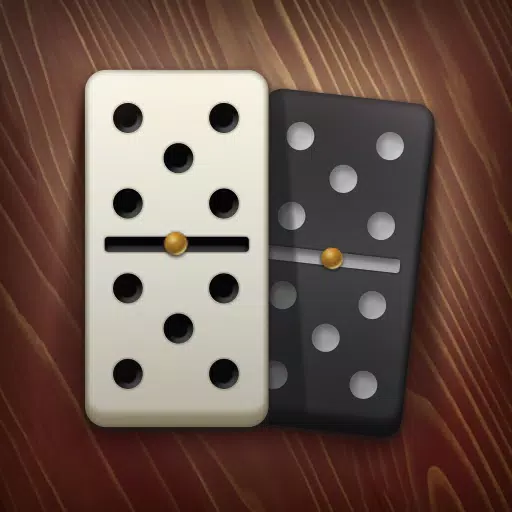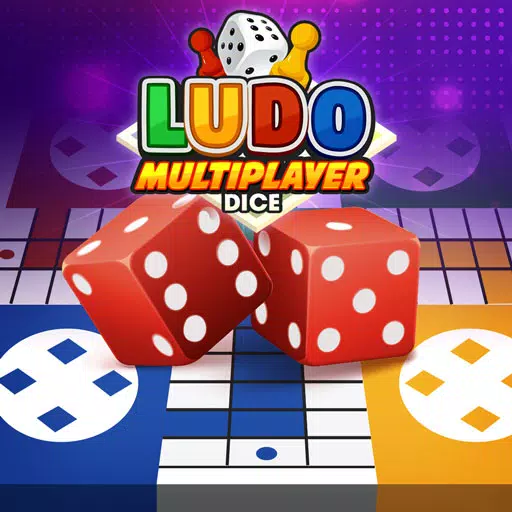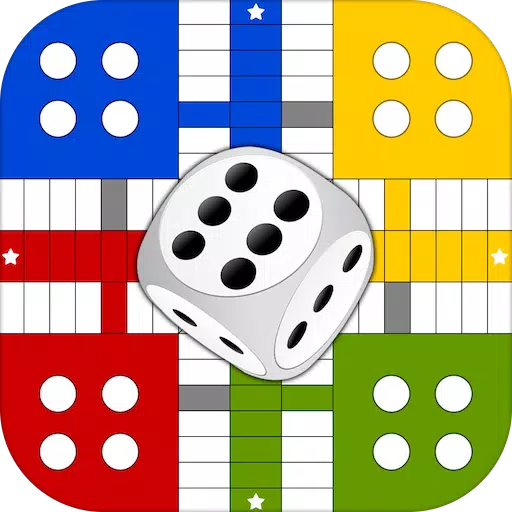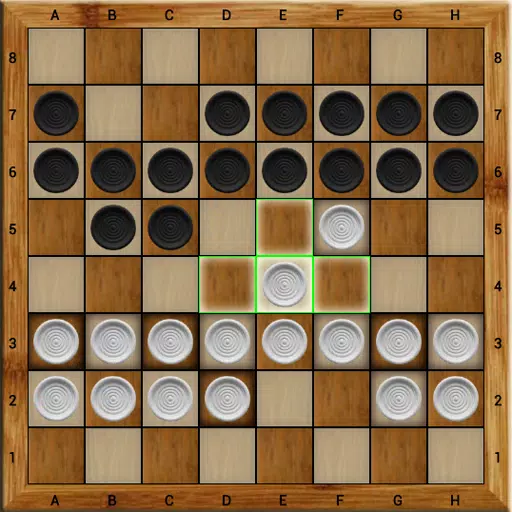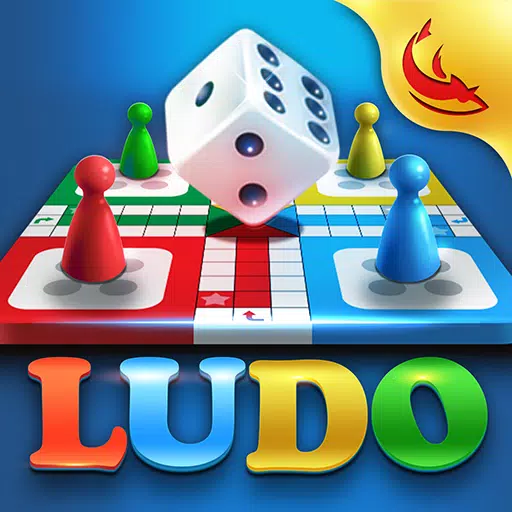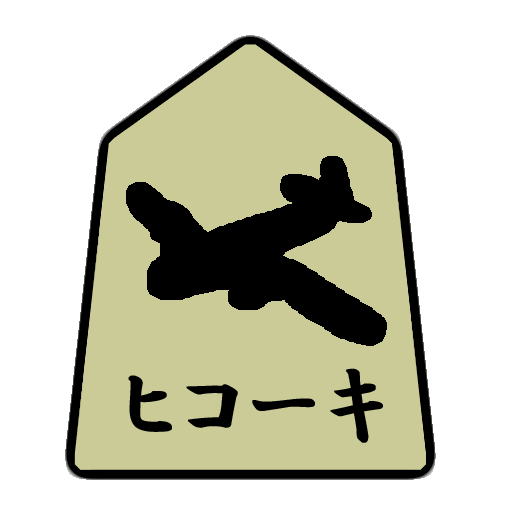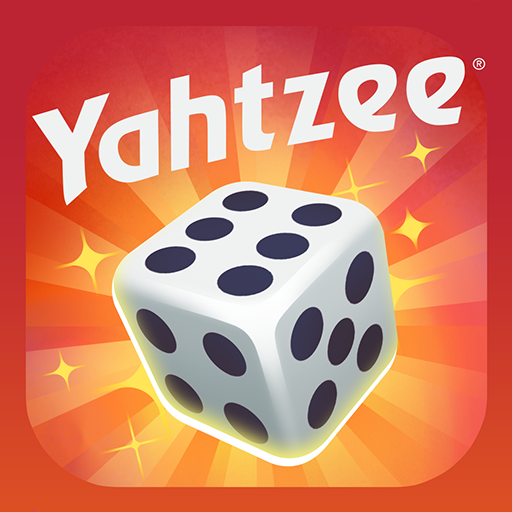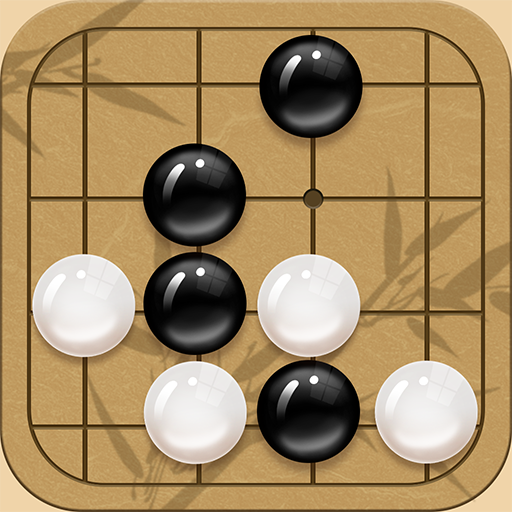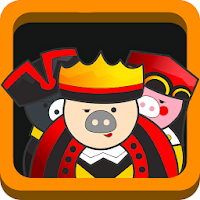Hanafuda Koikoi is a cherished traditional Japanese card game, and the English version of Hanafuda Koi-Koi brings this cultural gem to a broader audience. Known simply as Koi-Koi (Japanese: こいこい), this game is a favorite pastime in Japan and is played using Hanafuda cards, which are a unique set of Japanese playing cards. Designed for two players, Koi-Koi offers a delightful challenge that tests both strategy and luck.
The primary objective of Koi-Koi is to outpace your opponent by forming combinations of cards, known as "yaku," more quickly. The term "koi-koi," translating to "come on" in Japanese, is enthusiastically called out by players who choose to continue their hand in hopes of achieving more yaku and thus, higher scores.
In the game, players aim to create these special yaku combinations using cards they accumulate in their point pile. Cards can be added to this pile by matching them with cards already on the table or by drawing from the deck. Once a yaku is formed, players face a crucial decision: they can either stop the round to secure their points or opt for "koi-koi" to continue playing, risking their current points for the chance to form additional yaku and earn more. While the individual card values do not directly contribute to the score, they play a critical role in determining their potential in forming yaku, adding a layer of strategic depth to the game.

